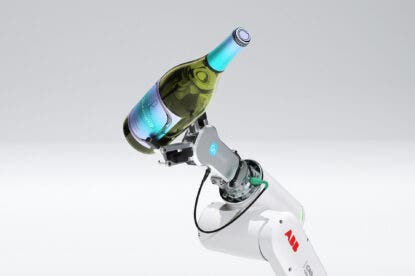“Wine just resonates with me. It goes much deeper than what we just put on the table,” says Tiquette Bramlett, president of Compris Vineyard (formerly Vidon Vineyard). The Willamette Valley winery announced her appointment in 2021, making her the first Black woman to oversee an Oregon winery.
Bramlett didn’t always know she wanted to be in wine.
From a very young age, Bramlett was drawn to music. So, in college, she majored in vocal performing. Part of training was to perform in front of real audiences throughout the city. While performing at local Italian restaurants, Bramlett noticed that not only was she excited about performing, but she was also really interested in the wine they were serving. “I really became fascinated with the history and stories behind the wines,” she says.
After graduating from college, Bramlett was diagnosed with cancer, which was the turning point in her career.
While in treatment, Bramlett learned all she could about wine from a book her mother gave her. Once cleared by her doctor, Bramlett decided she wanted to work within the industry and started taking classes.
After becoming a certified sommelier, Bramlett started working in wineries throughout Willamette Valley as a tasting room associate and brand ambassador. While not having many people who looked like her in Oregon was challenging at times, she says she was fortunate to have started her career with a supportive wine community.
“Having allyship is really important and empowering,” says Bramlett.
That’s why in 2020, she launched Our Legacy Harvested, an organization dedicated to promoting diversity and inclusivity in Oregon’s wine industry. The program is for people of color who don’t necessarily have the support or resources to get started in wine but are just as passionate about it as she is.
“I want to open that door a little wider and make the industry more accessible,” she says. “If I could make the load a little lighter, help BIPOC feel supported and provide ways to help with education, then why wouldn’t I do it?”
What do you wish you knew when you started working in the industry?
I didn’t know what I didn’t know, when I first started working in the industry, and I believe that was to my advantage. I came in open and hungry to learn as much as I could. The one thing I wish I knew when I started working in the industry is just how magical production is. It can certainly be challenging, but it is a space I have fallen in love with.
You were training to be an opera singer before you started in wine. Did your training in music help you navigate the wine industry or how you approach wine?
I believe that my training in music has helped me navigate the wine industry as I was pushed to stand in front of any audience and always be prepared for the audience I was going to be with. At Chapman, we were encouraged to study our audience and to be overly prepared for performances so that we knew how to connect and to ensure that we knew our piece from any point. I certainly have carried that into what I do today, just with my own swag.
There’s been a call to action to make wine more inclusive and accessible. Are you seeing that shift? Is the industry just talking the talk or are there real efforts to become more inclusive?
There has been a call to action in the wine industry, here in Oregon especially. We are certainly in the infant stages of that shift as an industry. There have been blossoming organizations across the country focused on opening that door wider to make the wine industry more inclusive and accessible. There are conversations happening within brands where they want to be intentional and not performative, and the less fear there is about making a mistake we will see more change come.
When I created Our Legacy Harvested, the intention behind the program is not to be a recruitment tool for brands, but to create a space where people of color can figure out their direction in the wine industry. For wine brands looking to build a more diverse team, we are here to provide you information for where you can connect with the BIPOC community. The outreach we have seen from some brands and organizations you can see that real efforts are being made, but as I stated in the beginning, we still have a way to go.
Who’s the most underrated person in the drinks business?
Our [Compris] vineyard stewards are the most underrated people. I love the history that is infused in their bones. I’ve had the honor of spending time with multiple generations that have worked one vineyard, and what they know and have passed on within their own families is beautiful. The knowledge they have of the land is like no other.
You’re at a dive bar. What do you order?
My go-to forever and always is Fernet and coke.
Published: July 5, 2022















